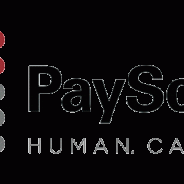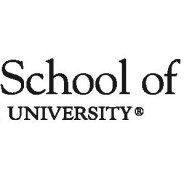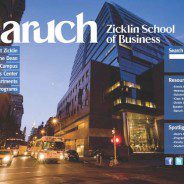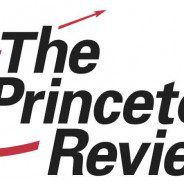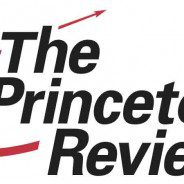Search results for :
BU Ranked For Post-Grad Salaries by PayScale
Boston University Graduate School of Management has been ranked no. 30 on PayScale’s 2014-2015 College Salary Report. The salary report ranks colleges and universities on alumni post-grad earnings. According to PayScale, alumni of the School’s MBA program pull in $81,900 as an early career salary, and rise to a mid-career salary of $132,900.
This is the first time PayScale has included graduate schools in its College Salary Report, and published its rankings of hundreds of graduate programs based on alumni salaries in four degree categories: JD, master’s, MBAs and PhD.
Tobin Holds Info Session at Staten Island Campus
The Peter J. Tobin College of Business at St. John’s University will be holding a graduate information session at its Staten Island campus. The event will be held Nov. 6, 2014 from 7 p.m. to 8 p.m. This event is open to all prospective students.
The information session is designed to provide insight on the value of an advanced business degree, a detailed overview of Tobin’s catalog of programs and guidance with the application process.
Specialized Masters Programs
Imperial College Specialized Masters
Specialized Masters’ Program Structure
Imperial College offers four Specialized Masters’ which are designed to equip graduates with the most effective skills to achieve their career aspirations
The Specialized Masters’ portfolio is made up of:
- MSc Business Analytics (online, part-time and on-campus full-time)
- MSc Climate Change, Management & Finance
- MSc Innovation, Entrepreneurship & Management
- MSc International Health Management
View all Specialised Master’s programmes
Curriculum
All Imperial College Specialized Masters are one-year in total in length except for MSc Business Analytics (online delivery, part-time), which is undertaken over 22-months. Before the programme begins students are expected to complete some online pre-study modules, which will be delivered through Imperial’s virtual learning environment, The Hub.
Students will also have to complete core modules which are studied on-campus by full-time students, and online for those studying the part-time programme.
Students on either format of our MSc Business Analytics programme and MSc Innovation, Entrepreneurship & Management are able to shape their learning with electives.
On top of this, students will also have the opportunity to undertake a choice of project as part of their studies.
The curriculum for your preferred Specialised Masters’ can be viewed by clicking the programme below:
- MSc Business Analytics (online, part-time and on-campus, full-time)
- MSc Climate Change, Management & Finance
- MSc Innovation, Entrepreneurship & Management
- MSc International Health Management
Class Profile
View your preferred Imperial College Specialized Masters class profile by clicking the programme below:
- MSc Business Analytics (online, part-time and on-campus, full-time)
- MSc Climate Change, Management & Finance
- MSc Innovation, Entrepreneurship & Management
- MSc International Health Management
Career Statistics
All figures from Imperial College Specialized Masters program’s employment statistics refer to graduates who are seeking employment and shared employment data. Employment reports are available for all Specialized Masters’.
View the employment statistics for your preferred Specialized Masters’ by clicking on your preferred programme:
- MSc Business Analytics (on-campus, full-time)
- MSc Climate Change, Management & Finance
- MSc Innovation, Entrepreneurship & Management
- MSc International Health Management
Tuition & Financial Aid
View the tuition fees of your preferred Imperial College Specialized Masters program by clicking the programme below:
- MSc Business Analytics (online, part-time and on-campus, full-time)
- MSc Climate Change, Management & Finance
- MSc Innovation, Entrepreneurship & Management
- MSc International Health Management
Scholarships through Imperial College Business School are available for qualifying students. Other merit or need-based scholarships are also available.
Admissions
All four Specialized Masters’ run on an admissions round basis and all have application deadlines. View the application deadlines of your preferred Specialized Masters’ by clicking the programme below:
Masters in Finance
Imperial College Masters’ in Finance Program Structure
There are five Imperial College Masters in Finance Programs which are intellectually rigorous and quantitative, covering a broad range of relevant topics to prepare you for a successful career in finance.
The Finance Masters’ portfolio is made up of:
- MSc Finance
- MSc Finance & Accounting
- MSc Financial Technology
- MSc Investment & Wealth Management
- MSc Risk Management & Financial Engineering
View all Finance Master’s programmes
Curriculum
All Imperial College Masters in Finance Programs are one-year in total in length. Before the programme begins students are expected to complete some online pre-study modules, which will be delivered through Imperial’s virtual learning environment, The Hub.
Students will complete a foundation module in September before completing the core modules, and then shape their learning with electives.
In the spring and summer terms, students will choose between undertaking two types of projects, in order to develop specialist skills and subject knowledge. Students can either pursue the Applied Project together with an additional elective, or a traditional Research Project.
The curriculum for your preferred programme can be viewed by clicking the programme below:
- MSc Finance
- MSc Finance & Accounting
- MSc Financial Technology
- MSc Investment & Wealth Management
- MSc Risk Management & Financial Engineering
Class Profile
View the class profile for your preferred Imperial College Masters in Finance Program by clicking the programme below:
- MSc Finance
- MSc Finance & Accounting
- MSc Financial Technology
- MSc Investment & Wealth Management
- MSc Risk Management & Financial Engineering
The GMAT average of the MSc class is 725.
Career Statistics
All figures from Imperial College Masters in Finance Programs employment reports refer to graduates who are seeking employment and shared employment data.
View the employment statistics for your preferred Finance Masters’ by clicking on your preferred programme:
- MSc Finance
- MSc Finance & Accounting
- MSc Investment & Wealth Management
- MSc Risk Management & Financial Engineering
Tuition, Scholarships, and Financial Aid
View the tuition fees of your preferred Imperial College Masters in Finance Program by clicking the programme below:
- MSc Finance
- MSc Finance & Accounting
- MSc Financial Technology
- MSc Investment & Wealth Management
- MSc Risk Management & Financial Engineering
Scholarships through Imperial College Business School are available for qualifying students. Other merit or need-based scholarships are also available.
Admissions
All Imperial College Masters in Finance Programs run on an admissions round basis and all have application deadlines.
View the application deadlines of your preferred Finance Masters’ by clicking the programme below:
- MSc Finance
- MSc Finance & Accounting
- MSc Financial Technology
- MSc Investment & Wealth Management
- MSc Risk Management & Financial Engineering
Masters in Management
Imperial College Masters in Management Program Structure
Imperial offers four Management Masters’ which are all relevant to business, combining academic rigour and applied expertise. The Imperial College Masters in Management portfolio is made up of:
- MSc International Management
- MSc Management
- MSc Economics & Strategy for Business
- MSc Strategic Marketing (on-campus, full-time or online, part-time)
View Imperial’s Management Master’s programmes
Curriculum
All Imperial College Masters in Management programmes are one-year in total in length except for MSc Strategic Marketing (online, part-time), which is studied over a 24-month period. Before the programme begins students are expected to complete some online pre-study modules, which will be delivered through Imperial’s virtual learning environment, The Hub.
Students will also have to complete core modules which are studied on-campus by full-time students, and online for those studying the part-time programme.
Students are able to shape their learning with electives for MSc Strategic Marketing (online, part-time), MSc International Management and MSc Management. Our MSc Strategic Marketing (on-campus, full-time) students will be able to explore a range of marketing topics in the non-assessed elective lecture series.
On top of this, students who study MSc Economics, Strategy & for Business or either format of MSc Strategic Marketing will also have the opportunity to undertake a choice of project as part of their studies.
MSc International Management students will have the opportunity to take part in an international experience and the Leadership in Action module.
The curriculum for your preferred Management Masters’ can be viewed by clicking the programme below:
- MSc International Management
- MSc Management
- MSc Economics & Strategy for Business
- MSc Strategic Marketing (on-campus, full-time or online, part-time)
Class Profile
View the class profile for your preferred Imperial College Masters in Management by clicking the programme below:
- MSc International Management
- MSc Management
- MSc Economics and Strategy for Business
- MSc Strategic Marketing (online, part-time and on-campus, full-time)
Career Statistics
All figures from the Imperial College Masters in Management employment statistics refer to graduates who are seeking employment and shared employment data.
View the employment statistics for your preferred Management Masters’ by clicking on your preferred programme:
- MSc Management
- MSc Economics and Strategy for Business
- MSc Strategic Marketing (on-campus, full-time)
Tuition, Scholarships, and Financial Aid
To view the tuition cost of your preferred Imperial College Masters in Management program select the program below:
- MSc International Management
- MSc Management
- MSc Economics and Strategy for Business
- MSc Strategic Marketing (online, part-time and on-campus, full-time)
Scholarships through Imperial College Business School are available for qualifying students. Other merit or need-based scholarships are also available. View all available MSc scholarships
Admissions
All Imperial College Masters in Management programs run on a rolling basis, except for MSc International Management which has set application deadlines.
View the application deadlines of your preferred Management Masters’ by clicking the programme below:
- MSc International Management
- MSc Management
- MSc Economics and Strategy for Business
- MSc Strategic Marketing (online, part-time and on-campus, full-time)
Masters in Financial Economics
Oxford MSc Financial Economics Program Structure
The Oxford MSc Financial Economics is a full-time nine-month program. The program features pre-course training that includes a three-day international module, four core courses in asset pricing, economics, corporate finance and financial econometrics, five electives to develop individual skills and specializations and a series of practitioner lectures in finance to provide students with insights into how the financial services sector is being shaped.
The program is run jointly between the school of business and the Department of Economics. The program is taught with an emphasis on the links between financial economics theories and key finance activities.
Curriculum
All students are given reading material to aid in pre-course training. This is helpful for those students who do not have a background in finance. All students are required to take part in pre-course classes in math, Matlab and accounting.
Students must take part in four core courses that cover the topics of corporate finance, asset pricing, financial econometrics and economics. Students must also take at least five elective courses. These courses cover topics ranging from corporate valuation to private equity. Electives are created to allow students to specialize in a specific area of interest.
Students have the option to pursue an additional Research track with their MFE degree. This opportunity is geared towards those students who plan to continue their education with doctoral research in financial economics.
Class Profile
The Oxford MSc Financial Economics is a highly diverse group with 96 percent of students coming from other countries. The average class size is around 80. About 22 percent of the most recent class identified as female and the average GMAT score was 733.
Tuition, Scholarships, and Financial Aid
The course fees and tuition for the Oxford University MSc Financial Economics program are £45,000.
Applicants who are offered and accept a place in the program are asked to pay a 15 percent non-refundable deposit, which is offset against their fees. The deposit is due 30 days after notification of acceptance.
Several scholarships are available for those students who qualify. In order to receive a scholarship, the admissions office asks applicants to please remember to check the scholarship box on the application form.
Admissions
Oxford University MSc Financial Economics applicants must have an accredited undergraduate degree with a 2.1 (3.5 GPA) or its equivalent. In addition, applicants must submit GMAT/GRE scores, two references (academic or professional), and a 500-word essay on the following topic: “How do you hope to see your career developing over the next five years? How will the MSc in Financial Economics assist you in the development of these ambitions?”
Select applicants may need to provide proof of English-speaking proficiency. Work experience is suggested but not required.
Application deadlines are as follows:
Round Two – Nov. 1, 2019
Round Three – Jan. 10, 2020
Round Four – March 13, 2020
Masters in Finance and Management
Cranfield University Masters in Finance & Management Program Structure
The Cranfield University Masters in Finance and Management is a one-year full-time program and is delivered over the course of four terms. The first term begins in September. The last term ends in the following September with the completion of a thesis.
Curriculum
There are pre-session courses required for those students who do not have a background in finance or management. These courses are Introduction to Accounting, Statistics and Basic Finance. All students are required to attend the Statistics and Finance lectures as part of their orientation week.
The first and second terms cover 10 core courses that cover finance management related topics. The third and fourth terms consist of four elective courses and the writing of a final thesis.
All of the courses offered are taught with an emphasis on real-world challenges. Students will learn through case studies, participative exercises, interactive lectures, group projects and sessions led by industry speakers.
The thesis is a major research project that gives students the opportunity to gain hands-on industry experience and make a real difference in a financial environment.
Class Profile
The Cranfield University Masters in Finance and Management is designed for both recent graduates looking to develop their knowledge of finance and management before starting their first professional role and for individuals who already have work experience in the area of finance or management and are looking to move ahead in their careers. The most recent class features 90 students, 42 percent of which are women. Average student age was 24, and 18 nationalities were represented.
Career Statistics
The Cranfield Career Development Service offers resources to assist alumni in finding employment. About 95 percent of School of Management students are typically employed within three months of graduation.
Tuition, Scholarships, and Financial Aid
The tuition fees for the Cranfield University MSc in Finance and Management is £23,000 and £25,000 for international students. A non-refundable deposit of £1,000 is due when acceptance of a place in the program is made. The remainder of the tuition fees are payable either before, or on the day of registration, which is the first day of orientation week.
There are a limited number of scholarships and bursaries available for students who qualify. Those who wish to be considered for these scholarships should indicate so in the financial details section of the application form.
There is also a CFA Program Awareness Scholarship available for those students who plan to take the CFA Program exams. Students who choose this option will receive revision support from faculty ahead of sitting the first examination in term three of the course. They will then sit parts two and three of the qualification after completing the Masters course.
Admissions
There is not a cut-off deadline for applications for this program. All documents, including transcripts, degree certificate, GMAT/GRE scores (if taken), two references and English language test scores (if applicable), must be submitted before the application will be processed.
Once the application is processed, an email will be sent for results or for a request for an interview. If an individual is successful in admission, a letter of confirmation will be emailed in order to secure their place in the program. The deposit to reserve their place in the program is due at this time.
Application deadlines are as follows:
September 2020
Feb. 28, 2020 (China Applicants)
July 31, 2020 (Visa-required Applicants)
There is no set deadline for UK/EU students currently.
Masters in Management
City University London Masters in Management Program Structure
The City University London Master’s in Management at Cass Business School takes place over the course of three terms (12 months). The program is designed for those who have obtained or are currently in the last term of obtaining an undergraduate degree in any area of study. The structure of the program is styled similarly to the Cass MBA program.
Curriculum
The program begins in September with a Foundations of Management workshop, which prepares students with some of the concepts necessary to complete the program. This workshop also includes careers and professional skills development workshops.
The first term consists of four core modules: Accounting & Finance, Principles of Marketing & Strategy, Organizational Behavior & HRM, and Quantitative Methods for Business.
The second term consists of two core modules and two electives.
The third term consists of three elective modules and a Business Research Project.
Elective options vary each year. Topics for electives range from air transport and supply chain finance to operational risk management and customer services and relationship management.
The Business Research Project is an eight thousand-word project that gives students the opportunity to specialize in a contemporary management topic that is related to a student’s future career. This project can be completed in partnership with a sponsoring organization or an organization that a student wishes to work for in the future.
Class Profile
City University London Master’s in Management is for students who are beginning their careers, who may not have any professional work experience. Those students who have more than three years of work experience are encouraged to apply for Cass’s MBA program. Applicants are strongly encouraged to take the GMAT test. The school looks for a well-balanced score in the range of 600-800.
The average age of the most recent class is 23-years old, with around 50 percent female students.
Tuition, Scholarships, and Fees
There is no application fee for this program but a £2,000 deposit is due within one month of receiving an offer to the program. The total tuition for the program is £23,500. Half of the total fee (minus the deposit) is due during registration. The second half of the total is due in the January following the start of the program.
Scholarships are also available for those students who qualify.
Admissions
In order to apply to the City University London Masters in Management program, applicants must submit the following:
• A completed online application
• Transcript/interim transcript
• Resume/CV
• 500-600 word personal statement
• Two references, one academic
• GMAT scores (not required, but recommended)
• IELTS scores (if necessary for non-native English-speaking applicants that have not earned an undergraduate degree at a predominantly English-speaking university)
No work experience is required in order to apply. No application fee is required.
Applications are accepted on a rolling basis. International students who will need a tier 4 visa to study will need to apply by mid-July before the start of the program in September.
Masters of Philosophy in Technology Policy
Masters of Philosophy in Technology Policy Program Structure
The MPhil in Technology Policy is an intensive nine-month program. The program is conducted over three academic terms and students will be required to study during the Christmas and Easter vacations. During the year students will focus on group work and individual coursework.
This program is for those who possess an undergraduate degree but do not necessarily have prior professional work experience (though it is preferred). A degree in science or engineering is preferred.
The MPhil in Technology Policy program is meant to give students the skills that they need to keep up with a world in which business technology is constantly changing. Areas that individuals with this degree may find work in include information and communications technology, defense and aerospace, energy and electricity, manufacturing, transport and logistics, pharmaceuticals and health.
Curriculum
Students are required to attend an orientation module that takes place in September. This is to help students meet other students within the MPhil in Technology Policy program.
Students are required to participate in six core courses and six electives, as well as complete a group project in which they will write about working with a technology-heavy company or organization. The curriculum emphasizes how to apply what the students are learning to the real world by using case studies. Areas of study include introduction to technology policy, ETECH, European Science and Technology Policy and seminars in technology policy.
Students will take two electives in each of three areas: Sectorial and Skills, Enterprise Stream, and Open Electives, which can come from either of the previous two categories or from a group of other electives listed by the university.
Class Profile
The most recent Cambridge Masters of Philosophy in Technology Policy class featured a total of 23 students. Around 30 percent of the class featured female students, with an average age of 24-years old, representing 11 different nationalities. The undergraduate GPA of the class was 3.7.
Career Statistics
The majority of MPhil in Technology Policy graduates earn roles in the consulting industry (25 percent), followed by finance (20 percent), and government roles (15 percent).
Tuition, Scholarships, and Financial Aid
The total tuition costs for applicants to the Cambridge Masters of Philosophy in Technology Policy program is currently £47,125.
Scholarships and external funding is available for students who qualify.
Admissions
Along with a completed application, potential students applying to the Cambridge Masters of Philosophy in Technology Policy program must submit the following:
• A current resumé/CV
• A supporting statement explaining the following: (1) “Why you have chosen to do the MPhil in Technology Policy?” (2) “What work experience and other relevant experience (especially leadership experience) you might have?” (3) “How you feel the MPhil in Technology Policy will help in your future?”
• Proof of English-speaking proficiency, if needed.
Applicants are expected to have earned a First Class Honours or equivalent degree (science or engineering preferred), along with a solid education/understanding in mathematics. Work experience is not formally required. Students applying to the program are expected to have a minimum undergraduate GPA of 3.7.
Application deadlines are as follows:
June 16, 2020
LBS Sloan Masters in Leadership and Strategy
Sloan Masters In Leadership And Strategy Program Structure
London Business School’s Sloan Masters in Leadership and Strategy program is designed for people with substantial experience who are looking to become truly effective leaders and create value for their organizations.
The program is designed for those who wish to affect change and execute value-driving strategies within their organizations and develop new styles of leadership for a changing world.
This is a full-time 12-month Masters Degree program. The majority of the classes are held between Tuesday and Thursday to give working professionals schedule flexibility. Outside of this, students are required to set aside time for skills sessions, private study, study group meetings, careers events, guest speakers, and club events.
Curriculum
Core courses are completed over the first seven months, and elective options can be taken from the end of the first term. Electives are run in different formats, some in single block weeks and some over 10-week terms up to the end of the program.
The core courses cover concepts in finance, management accounting, strategy, corporate governance, leadership and marketing. Students are also instructed on how these can be harnessed to drive and improve organizational performance.
Students are also required to take between five and eight electives. Electives give students the opportunity to customize their learning in areas of interest and to meet the needs of their organization.
Students can also participate in an independent project, which gives them an opportunity to tailor their learning experience to add value to their particular organization. The independent project can be directly related to an individual’s organization or can be related to an outside organization. This is an opportunity to hone strategic management in order to address critical business issues.
Participants are also required to complete an international assignment. This is a weeklong assignment that gives students a first-hand look at how business operates in other parts of the world. Students travel to destinations such as China, the United States, the Russian Federation, India, South Africa, or Argentina while accompanied by a member of faculty. Students will work in small teams, working closely with an organization on a real business project or visiting companies, NGOs, institutions, and consultancies to gain fresh insight into international business practices.
Class Profile
The most recent LBS Sloan Masters class features 69 students, 24 percent of which identify as female. Students enrolled in the program have about 18 years of previous professional work experience, nearly half of which comes in general management.
Tuition, Scholarships, and Financial Aid
The cost for the LBS Sloan Masters in Leadership and Strategy program is £70,800. This cost covers tuition, core course textbooks and some elective course textbooks and a fee of £8,900 when they accept their offer of a place on the program. There is a student association fee of £60.
Admissions
Those who wish to enroll in the program must submit a personal essay, two essays, and an additional optional statement. In addition, applicants must provide an up-to-date resume, one or two recommendations, transcripts, GMAT/GRE scores, proof of English proficiency (if needed), and an application fee of £160.
The GMAT requirement may be able to be waived for applicants that have sufficient work experience, previous academic work, and a “a suitable level of seniority and demonstrated academic strength in a quantitative area,” according to LBS.
The current application deadline is ongoing.
Masters in Management
London Business School Masters in Management Program Structure
The London Business School Masters in Management program is for recent graduates who have less than one year of full-time postgraduate corporate work experience or less than two years of experience in a non-traditional business role who wish to build a strong business foundation.
The program has been offered as a one-year full-time program since its beginning, with the two-year Global Masters in Management Program began in September 2015.
Curriculum
The one-year London Business School Masters in Management program is taught over the course of three terms. Terms run from September to December, January to March and April to June. The official course end is in the following September, after the September Exam Board is completed.
The program requires students to take core courses and electives. The core courses include a wide range of fundamental knowledge and skill areas. Students also have the option to develop a personal development plan tailored to their specific learning needs. Workshops include networking and presentation skills, Excel skills, creative thinking, and time management.
Class Profile
Between the MiM and the Global MiM, the class of 2019-20 consisted of 251 total students. About 45 percent of the last class identified as female. The class is represented by 45 total nationalities. Those entering the program have an average GRE quants score of 164 and an average GRE verbal score of 158.
Career Statistics
Ninety-six percent of students in the MiM and Global MiM programs receive a job offer within three months of graduating with an average base salary of £42,118.
Tuition, Scholarships, and Financial Aid
Tuition for the London Business School Masters in Management program is £32,500.
Students who are accepted to the Masters in Management program are required to pay a Commitment Fee of £1,500 (within approximately three weeks of their offer for admittance) and then a Reservation Fee of £6,000 (within approximately six weeks of offer). Both the Commitment Fee and the Reservation Fee are non-refundable and will be deducted from the total tuition fees. The student associate fee is an additional £120.
Tuition and other fees will not cover the cost of living accommodations or textbooks. Students should also be advised that a laptop computer is also required for the program.
Admissions
Applications for the LBS Masters in Management program must be completed online. Hard copies of the application and other supporting documents will not be accepted. The one-time nonrefundable application fee is £95.
In order to have their application considered by admissions, prospective students must complete and upload the following documents to the application website: Online application form, essay questions, CV/resume, undergraduate degree equivalent to a UK 2:1 or above (or expected grades if their degree is not yet completed), GMAT (range of 600-800)/GRE scores, IELTS, TOEFL, Cambridge CPE, CAE, or PTE Academic score (if applicable), and two references (academic or professional).
Students are also required to pay the application fee before an application will be considered for admission.
Once the application process is completed, applications will be reviewed and approved students will be given an interview date. After the interview process, applicants will be given an admissions decision.
Application deadlines are as follows:
Jan. 8, 2020
March 4, 2020
April 22, 2020
Masters in Finance
London Business School Masters in Finance Program Structure
The London Business School Masters in Finance is a flexible program designed for experienced finance professionals, with a minimum experience requirement of two years. Students have the option to study part-time over 22 months or full-time for 10-to-16 months.
Most full-time students will have three to eight years’ experience and part-time students will have slightly more experience. The full-time program runs for 10 months from late August to June or for 16 months from late August to December. The full-time program requires students attend 12 contact hours on campus per week. The full-time program also requires students to spend at least 30 hours a week studying on their own or as a part of study groups.
The part-time program runs for 22 months from late August to June. The part-time program requires students in their first year to attend classes Friday evenings and every other Saturday and in their second year to attend weekend, block week or evening format electives.
Curriculum
Full-time students will complete five core courses, which explore an in-depth understanding of key finance concepts during their first term. Core modules consist of: Investments, Corporate Finance and Valuation, Purpose of Finance, Financial Accounting and Analysis, Data Analytics and Finance and Personal Assessment and Development Programs.
The remaining two or three terms cover the seven to ten required electives. Full-time students have the option to extend the length of their program by one term (from 10 to 16 months). In this additional term, students can apply to do an international exchange, a company sponsored project or additional electives.
Part-time students will complete four core courses during their first term. The first term consists of 18 weeks of study. During the remaining terms, students will complete a mix of core courses and electives. Courses during the first year will take place every other weekend on Friday and Saturday nights; during the second year they will take place on the weekends, in a block week format, or in the evenings. Students will have the flexibility to choose which format works for them.
The program also offers a concentration option. The concentration study route offer students the opportunity to develop in-depth knowledge and skills vital for specific career paths in the financial world. Students can specialize in one of the following concentrations: Investment Management and Analysis, Corporate Finance, Risk Management, and Derivatives or CFO.
Class Profile
The London Business School full-time Masters in Finance program consists of 126 students, representing 39 nationalities. The part-time program consists of 75 students, representing 30 nationalities.
The program does not use a pre-determined cut-off score for GMAT, however the admissions office states that it is unusual for the school to accept a candidate with a total score below 600.
Tuition, Scholarships, and Financial Aid
The tuition fee for the most recent intake of the London Business School Masters in Finance program is £46,800. Those enrolled in the full-time program must pay a fee of £1,800 within four weeks of an offer of enrollment, and a second fee of £6,200 eight weeks after the offer. That initial commitment fee is the same for the part-time version, however, 50 percent of the total fees will be due in late July with the remaining 50 percent due in late July of the following year.
Fees for the program cover tuition, preparatory courses, some course materials and a contribution to the London Business School Students’ Association. Fees do not cover living expenses or textbooks. Scholarships are also available for students who qualify. Sponsorship from employers is also accepted for payment of fees. The student associate fee is an additional £120.
Admissions
Applications for the London Business School Masters in Finance program can be completed online. The process for completing an application for either the full-time or part-time program includes uploading answers to the essay questions, a one-page CV/resume, transcripts of grades from each university the student has attended, names and contact information for two references, and GMAT or GRE scores. An application fee of £120 is due at the completion of the application process. GMAT/GRE scores may be waived for select applicants.
The majority of students entering the full-time program will have between three and eight years of professional finance experience, while part-time students will have slightly more.
Non-native English speaking applicants must provide proof of English-speaking abilities with their application.
Application deadlines are as follows:
Round Two – Nov. 5, 2019
Round Three – Jan. 7, 2020
Round Four – March 3, 2020
Round Five – April 28, 2020
Fox Offers Admission Decision in 24 Hours
The Fox School of Business at Temple University is offering applicants an opportunity to receive an admissions decision before the first deadline. The Fox Decision day offers students interested in the Global MBA program, who have completed their application by Nov. 3, 2014 the chance to receive a decision by the admissions office by Nov. 10, 11 or 12, 2014.
Applicants must complete the entire application for the Fox School by Nov. 3, 2014 in order to receive an invitation to attend the Decision Day event. The event will give applicants the opportunity to complete an admissions interview on sight and receive a decision within 24 hours. During the event, prospective students will also be able to sit in on a live Global MBA class with current students, Meet with some of Fox’s world-class faculty, spend one-on-one time with the school’s no. 1 ranked career services and professional development team, access pre-first round scholarships and attend exclusive events and activities with alumni and current students.
Saïd Business Scholar’s Report Details Findings on Millenials and Social Entrepreneurship
A new Saïd Business School report examining the views of millennials on the social role and responsibilities of business captures the growing international significance of social entrepreneurship. Drawing on the responses of more than 2000 young professionals (YPs), 40 business leaders and 500 social entrepreneurs in US, UK, Mexico, Brazil, China and South Africa, the report casts light on how global trends are influencing the values of tomorrow’s leaders, showing how they define success in their professional careers, and their views of the potential of social entrepreneurship to offer new business models which combine profit with positive social impact.
The report, (Redefining) Success in a Changing World, is authored by Soushiant Zanganehpour, a consultant at Saïd’s Skoll Centre for Social Entrepreneurship.
Continue reading…
Zicklin Holds Open House
The Zicklin School of Business at Baruch College will hold an open house for prospective MBA students. The event will be held on November 5, 2014 at the Newman Conference Center Information and Technology Building. The event will be held from 6 p.m. to 7:45 p.m.
This is Zicklin’s most comprehensive on campus event for prospective students. It will offer opportunities for attendants to interact with key administrators and faculty. There will be a discussion on the academic programs and the admissions process for the Zicklin School of Business. The school offers both full-time and flexible MBA programs as well as the Baruch Healthcare MBA.
Booth Recognizes its 2015 Siebel Scholars
Five University of Chicago Booth School of Business students have been recognized as 2015 Siebel Scholars for their academic achievement and leadership and were among the 83 winners from around the world who received $35,000 to use in their final year of study.
“Representing the best and brightest from around the globe, these distinguished students join entrepreneurs, researchers and philanthropists from past Siebel Scholars classes to form an unmatched professional and personal network — bringing together diverse insights and perspectives from business and engineering disciplines at the forefront of solutions to global challenges,” Thomas M. Siebel, Chairman of the Siebel Scholars Foundation, said in a release. Continue reading…
Suffolk Ranked Best for MBA by Princeton Review
The Princeton Review has ranked Suffolk University’s Sawyer Business School as one of the best institutions in the nation for an MBA degree. The review specifically cited the school’s “solid preparation in general management and teamwork” with a focus on “preparing students for the real world.”
Suffolk’s Sawyer Business School joins the exclusive group of institutions profiled in The Princeton Review’s 2015 edition of its guide The Best 296 Business Schools. Inclusion in the list is determined by an analysis of key criteria including Best Campus Environment, Best Professors and Best Career Prospects.
Cal State LA Biz School Ranked by Princeton Review
Cal State L.A. College of Business and Economics has been named among nation’s best MBAs by the Princeton Review. This is the first time that Cal State L.A. has been included in The Princeton Review’s annual book, The Best 296 Business Schools.
Cal State L.A.’s College of Business and Economics offers graduate programs in accounting, healthcare management, information systems and economics, as well as the Master of Business Administration. Overall, more than 3,800 students are majors in the college.

